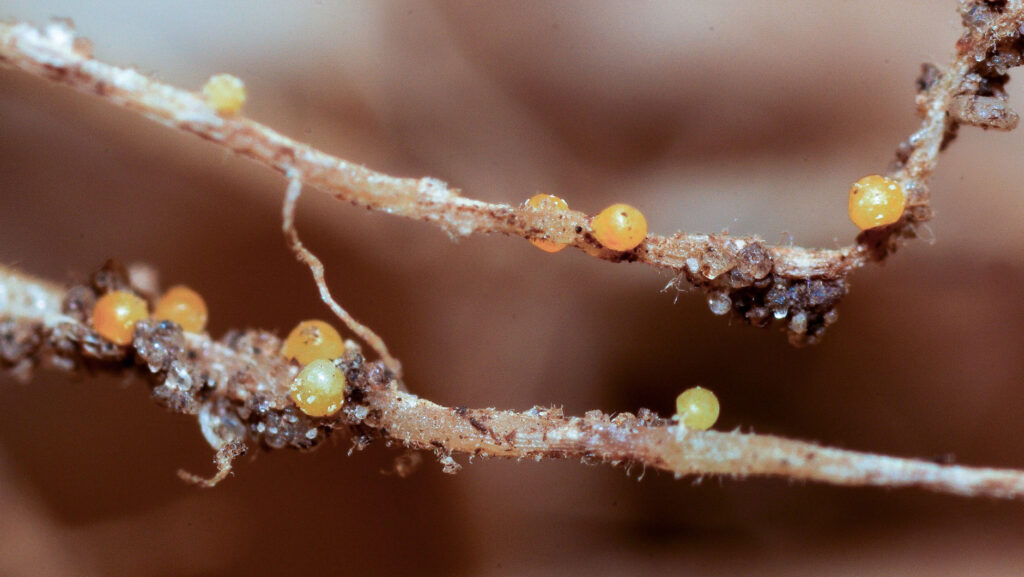New guide released to help tackle costly potato pests
 © Martyn Cox/Blackthorn Arable
© Martyn Cox/Blackthorn Arable Two potato organisations have jointly published a guide aimed at helping farmers manage a soil pest that results in yield losses estimated to cost the sector as much as £26m/year.
Potato cyst nematode (PCN) is thought to infect almost half of the UK’s potato land, and its control is becoming increasingly difficult as chemical options dwindle.
To help farmers, GB Potatoes and the Cambridge University Potato Growers Research Association (CUPGRA) have pulled together the latest science-based advice on addressing the pest.
See also: How to control nematodes in potatoes with a trap crop
Available exclusively to members of both GB Potatoes and CUPGRA, the guide provides practical, up-to-date strategies for managing PCN, specifically Globodera pallida and G rostochiensis.
These nematodes pose a significant risk to yields, soil health, and the long-term sustainability of UK potato production, particularly considering the potential withdrawal of key nematicide crop protection products.
The new PCN guide offers integrated, evidence-based recommendations covering:
- Cultural control methods
- Biological and chemical control options
- Variety selection and resistance management
- Monitoring and diagnosis practices
- Sustainable farming approaches.
To ensure all potato growers benefit from this initiative, a free factsheet summarising the key points from the guide will soon be made publicly available.
This factsheet provides growers a snapshot of the latest thinking in PCN control, supporting better decision-making across the sector.
“This guide is about empowering our members and the wider industry with the tools they need to safeguard the future of potato farming,” say Scott Walker, chief executive officer at of GB Potatoes, and David Almond, director of CUPGRA.
“It directly addresses the growing challenges posed by PCN in potatoes — challenges that threaten the economic viability and long-term sustainability of our industry,” says Scott.
Eradicating PCN from infested land would require extreme measures, such as prolonged fallow periods or complete soil sterilisation, which are unfeasible in a commercial farming context.
Instead, Scott says what is needed is a pragmatic, integrated approach that limits the development of PCN populations over time using a combination of complementary strategies.
“This guide provides specific, practical crop protection measures tailored to PCN, covering everything from cultural and biological controls to chemical treatments and varietal resistance.”
GB Potatoes
GB Potatoes was established by a small group of potato growers to fill the void left by the abolition of AHDB Potatoes.
By opening membership to all in the potato industry, the organisation aims to facilitate collaboration across the industry, enabling collaborative actions to tackle the challenges confronting the sector.
CUPGRA
The Cambridge University Potato Growers Research Association (CUPGRA) is a charitable association of potato growers, agronomists, packers, processors and other stakeholders in the supply chain who value independent, high-quality research.
Based in the UK, it promotes the interchange of scientific research and field practice for innovative, sound commercial production of potatoes through its association with Niab.

